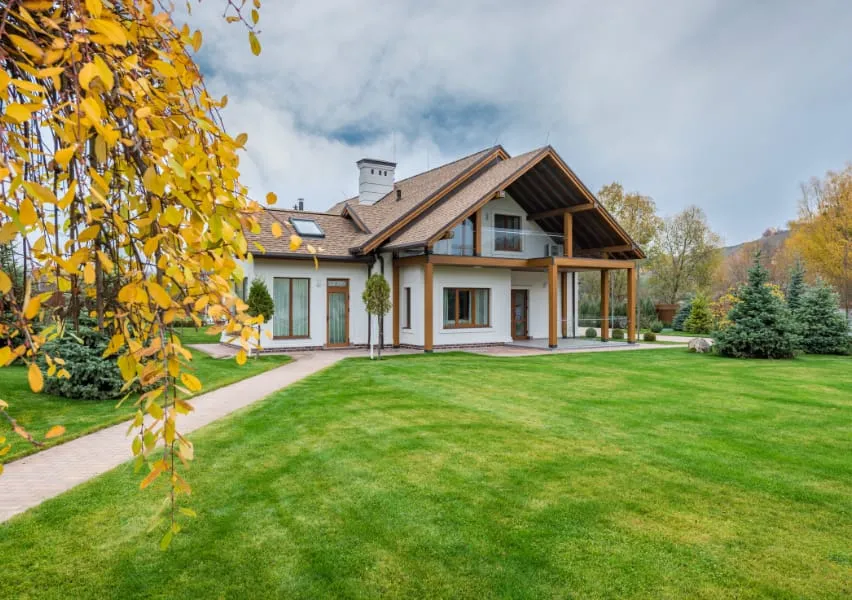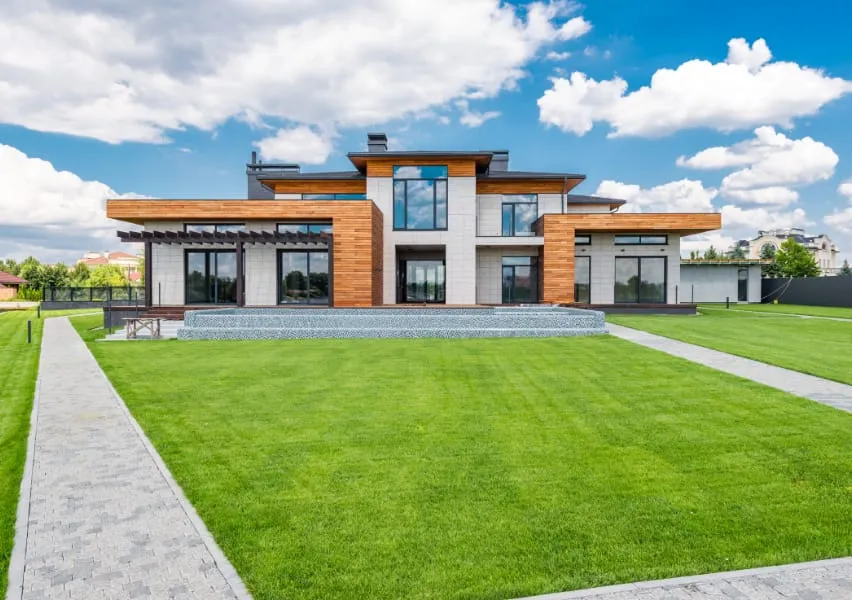Are you looking to invest in buying a house in Pakistan but not sure where to start? With Pakistan’s real estate market growing rapidly, it’s completely normal to feel uncertain about what factors to consider before making such a significant investment. Buying a house is one of the most important decisions you’ll make, and it’s crucial to get it right.
In today’s market, owning a house is not just about finding a place to live, but also about making a smart investment for the future. Whether you’re a first-time buyer or looking to upgrade, understanding what to look for when buying a house can save you from costly mistakes down the road.
In this blog, we’ll cover the essential factors that every potential buyer should consider before making the leap. From choosing the right location to checking legal documents, we’ll guide you through the process step by step so you can confidently navigate the world of real estate in Pakistan.

Why Buying a House in Pakistan is a Major Life Decision
When purchasing a home, it’s about more than just four walls, it’s about securing your family’s future and improving your quality of life. With many options available in Pakistan’s real estate market, knowing what factors to prioritize can save you from financial and emotional stress.
Let’s have a look into the top factors you should consider when buying a house in Pakistan.
1. Location and Neighborhood: A Critical Starting Point
Why Location Matters:
The location of your house directly impacts your convenience, safety, and property value. A prime location provides easy access to schools, hospitals, markets, and workplaces, while also offering a sense of security and long-term value appreciation.
Key Factors to Evaluate:
- Proximity to Amenities: Ensure the property is close to essential services like schools, hospitals, and grocery stores.
- Safety and Security: Research the neighborhood’s crime rates and ask about security measures.
- Future Development Plans: Check if there are upcoming infrastructure projects that could increase the property’s value.
Expert Tip: Visit the location during different times of the day to evaluate traffic patterns, noise levels, and overall vibe.
2. Property Condition: Don’t Ignore Hidden Issues
What to Inspect in a Home:
- Structural Integrity: Check for cracks in walls, sagging floors, or foundation problems.
- Plumbing and Electrical Systems: Ensure all systems are functional and meet modern standards.
- Ventilation and Natural Light: Good airflow and sunlight contribute to better living conditions and energy savings.
Pro Tip: Hiring a home inspector is a smart move to uncover hidden issues before finalizing your purchase.
3. Legal Documentation: Safeguard Your Investment
Ensuring the property’s legal status is crucial when buying a house in Pakistan. Overlooking legal documentation can lead to disputes or even loss of your investment.
Essential Documents to Verify:
- Ownership Title: Ensure the seller has clear ownership of the property.
- No Objection Certificates (NOCs): Confirm that the property complies with local government regulations.
- Utility Clearances: Verify that there are no outstanding utility bills or dues on the property.
Expert Advice: Always involve a trusted legal advisor or consult professional property developers in Islamabad for guidance.
4. Energy Efficiency: Save Costs in the Long Run
Why Energy Efficiency Matters:
An energy-efficient home is not only environmentally friendly but also saves on utility bills.
Features to Look For:
- Insulation: Well-insulated walls and roofs reduce energy consumption.
- Windows: Opt for double-glazed windows that maintain indoor temperature.
- Solar Panels: Homes with solar systems reduce long-term electricity expenses.
Quick Insight: An energy-efficient home may require a higher upfront investment but will yield significant savings over time.
5. Resale Value: Think Beyond Today
Why Consider Resale Value?
Even if this is your dream home, market trends may change, and resale potential can secure your financial future.
Factors That Influence Resale Value:
- Prime Location: Properties in desirable neighborhoods tend to appreciate faster.
- Functional Layout: Homes with a practical layout are more appealing to future buyers.
- Unique Features: Features like a spacious garden or modern design can boost value.
Important Tip: Evaluate the resale potential by consulting a real estate agent familiar with the area.
House Buying Checklist: Key Factors to Consider
Here’s a simplified checklist that you can consider while buying a house in Pakistan:
| Factors | What to Check |
|---|---|
| Location & Neighborhood |
- Proximity to schools, hospitals, shopping centers, and public transport. - Safety and security of the area. - Future development plans for the neighborhood. |
| Size & Layout |
- Number of bedrooms and bathrooms. - Overall square footage of the house. - Layout suitability (open plan, storage space, etc.). |
| Property Condition |
- Check for visible damage (cracks in walls, water stains, or mold). - Inspect plumbing, electrical, and HVAC systems. - Look for signs of pest infestations or structural issues. |
| Structural Integrity |
- Inspect the foundation for cracks or instability. - Check for sagging floors or walls. - Ensure the house is level and secure. |
| Energy Efficiency |
- Check insulation in walls, attic, and basement. - Ensure windows are double-glazed or energy-efficient. - Check for proper ventilation and airflow throughout the house. |
| Resale Value |
- Assess the neighborhood's potential for price appreciation. - Look for unique features or upgrades that could add value. - Consider the property’s demand in the market. |
| Legal & Paperwork |
- Verify ownership and property title. - Ensure compliance with local zoning laws and building codes. - Check for any outstanding liens or legal disputes on the property. |
| Hidden Issues |
- Hire a professional home inspector to check for plumbing or electrical issues. - Look for signs of water damage, mold, or roof leaks. - Ensure there are no structural issues hidden beneath the surface. |
| Budget & Financing |
- Make sure the house is within your budget, including closing costs, taxes, and insurance. - Assess the potential for ongoing maintenance and repair costs. - Get pre-approved for a mortgage to understand what you can afford. |

This checklist will help you stay on track while buying a home and ensure that you’re covering all crucial aspects before making your decision.
Red Flags When Buying a House
When buying a house, it’s essential to look beyond the property’s surface appeal. Many homes might seem perfect initially but could hide costly issues that become apparent after the purchase. Identifying these red flags early can save you from financial and emotional stress later.
Common Red Flags to Watch For
- Water Damage or Mold: Water stains, discoloration, or a musty smell could indicate hidden leaks or previous water damage. Mold is not just unsightly but also poses health risks, making it crucial to address before moving in.
- Outdated Systems: Ensure that critical systems like plumbing, wiring, and HVAC are modern and functional. Older systems may require immediate upgrades, leading to unplanned expenses.
- Roof Condition: Inspect the roof for missing shingles, leaks, or sagging. A damaged roof can lead to further structural problems and hefty repair costs.
Spotting these red flags when buying a house can prevent regretful decisions and unnecessary expenses. Always conduct a thorough inspection or hire a professional to evaluate the property. A little caution today can save significant trouble tomorrow, ensuring your investment is safe and secure.
Who Can Help You Buy the Perfect House in Pakistan?
Buying a house involves multiple aspects, and having the right experts by your side simplifies the process.
Professionals to Include in Your Team:
- Real Estate Agent: Guides you through listings, negotiates deals, and identifies quality properties.
- Home Inspector: Evaluates the condition of the property, from structural integrity to hidden issues.
- Legal Advisor: Verifies legal documentation and ensures a secure transaction.
- Property Developers: Reliable developers like The Cloud Services offer expertly built homes with complete transparency.
Conclusion: Make an Informed Decision with Expert Guidance
Buying a house in Pakistan is a rewarding but complex process. By focusing on the right factors like location, property condition, legal documentation, and energy efficiency you can secure a home that meets your current and future needs.
If you’re still unsure whether buying a house is the best option for you, it’s worth considering other alternatives, like apartments. To help you make a more informed decision, take a look at our detailed guide on House vs. Apartment: Which is Better? and weigh the pros and cons of each choice.
At The Cloud Services, we specialize in providing luxury homes and apartments in Islamabad, developed to your lifestyle and budget. With our expert team of property developers, we’ll help you find your dream home without any hurdles.
Contact us today to explore premium properties and make your dream of owning a perfect home a reality!
FAQs
.Q1: How do I ensure a house is legally clear?
To ensure a house is legally clear, hire a qualified legal advisor. They will verify ownership documents, check for any encumbrances, and confirm that the property complies with local zoning and construction regulations. This step is essential to avoid legal complications.
Q2: Is buying property still the best option?
Yes, buying property remains a reliable investment. It offers long-term financial security, potential value appreciation, and a sense of ownership that renting cannot provide. Property can also serve as a source of rental income, making it a versatile investment option.
Q3: Is buying a home even worth it anymore?
Buying a home is worth it if you prioritize stability and financial growth. While market conditions fluctuate, owning a home shields you from rising rental costs and allows you to build equity over time, which can lead to significant returns in the future.
